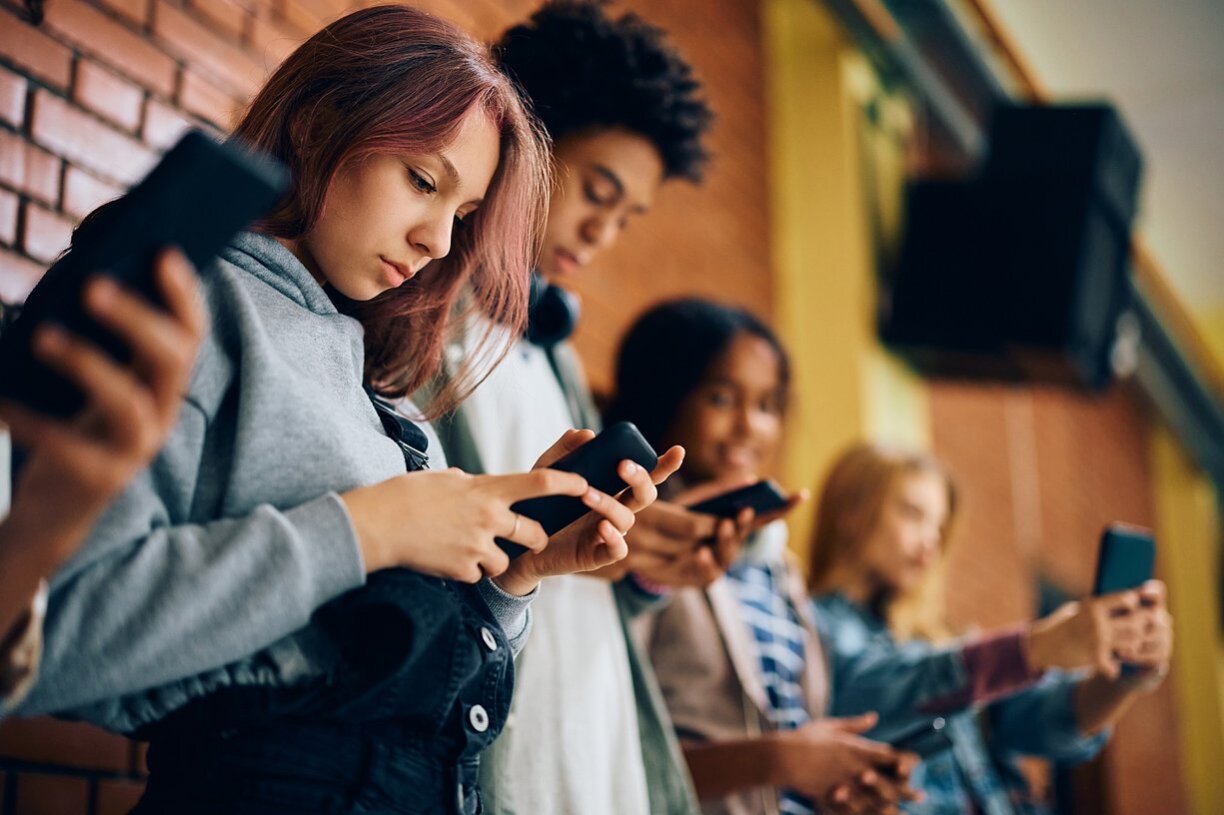
As of April 2025, Luxembourg has implemented a total ban of smartphones in primary schools, extending to all areas including playgrounds.
From June 2025, secondary schools implemented restrictions on smartphone use. Each school can choose a level of restriction, the strictest option – a total ban during school hours – has been adopted by a few schools.
There’s been a lot of conversations surrounding this topic, teachers, parents and government officials speaking out, but maybe we should listen to the people which this ban effects – the students.
Since I’m a student at the European School Luxembourg I, which was one of the first schools to implement the phone ban, I thought it would be beneficial to share my opinion on the matter.
In an increasingly digitalised world, smartphones have become an extension of ourselves – tools for communication, entertainment, learning and more. So when Luxembourg introduced a national ban on mobile phone use in schools, many teenagers felt confused. How are we going to communicate now?
Phones are a part of our daily rhythm, I think many forget that the recent generation has been practically born with a phone in their hand. Our phones now hold important and vital information that can help us in our everyday life, restricting or taking them away entirely without any notice felt extreme for students.
I’m not criticising the whole idea, I’m actually all for banning phones in classrooms. I’ve seen first hand just how distracted students are by their phones and how phones can disrupt the lesson.
Studies consistently show that phones negatively impact concentration and academic performance when used during lessons. Notifications fragment our attention, messaging apps interrupt the flow of thought. Social media, often used right before or during the lesson, can spill into the class emotionally – especially when students encounter online drama, bullying or comparisons that affect their mood and focus.
There is also the mental health aspect. Excessive screen time, particularly on social media, has been linked to increased anxiety and depression among adolescents. By limiting access during school hours, educators hope to restore in-person social interaction, reduce stress and have students be more present during lessons.
However, it should be put into account that phones can be tools of connection. Many students who are affected by the ban don’t just mindlessly stare into their phones, without paying attention to the world around them. When phones are used during school hours it’s usually to communicate, play a game, or share an interesting post with other people.
During a quick break we might want to share something among our friend group, but we’re not in the place where phones are allowed. Additionally, parents or guardians may feel uneasy about not being able to reach their children during the day, especially in emergencies.
In my opinion, banning phones in classrooms is a necessary step to help students regain focus and foster healthier learning environments. However, the policy should be implemented only in classrooms not during all school hours – and with a little bit more empathy.
There shouldn’t be such harsh consequences (like detention) for students who used their phones because they wanted to organise a meeting spot for lunch or simply checked the time. Instead, schools should offer alternatives for communication and learning, as well as provide lessons on social media literacy, to help students better understand the risks of excessive social media use.
This is an important topic – overuse of mobile phones is a serious problem with many negative effects, but personally I think we should focus on even more damaging things that are problems in our schools, like vapes and drugs, which pose long-term, and – with frequent use, irreversible health problems. Tackling these types of problems should be a nation-wide priority.
For now, I know that the phone ban is here to stay, so let’s try not to view it as punishment and maybe consider it an opportunity – to reduce our dependency on phones and social media; and to regain our focus and attention span in lessons as well as in our every day lives.
Lena is a 17-year-old and was an intern at RTL Today in June–July 2025.
European School Kirchberg sees positive response to smartphone ban